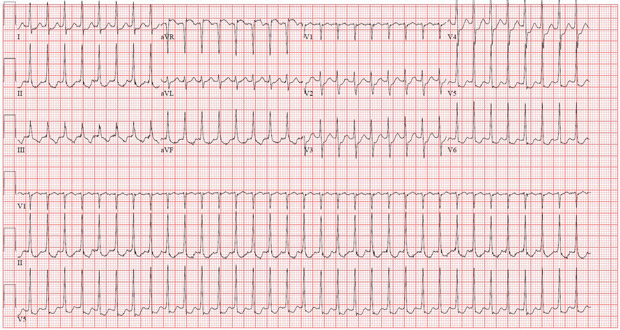Latest updates on ACP's priorities, initiatives
ACP Spotlight offers readers a look at ACP's current top priorities and initiatives, as well as highlights from our e-newsletter, ACP Internist Weekly.
ACP, American Telemedicine Association collaborate on new Digital Health Assessment Framework
ACP, the American Telemedicine Association (ATA) and ORCHA, the Organization for the Review of Care and Health Applications, have developed a new U.S. framework for assessing digital health technologies, including mobile apps and web-based tools used by health care professionals and consumers. ACP has also announced a pilot test of a database of digital health tools reviewed against the framework by ORCHA.
The Digital Health Assessment Framework is intended to be a freely accessible framework to support the adoption of high-quality digital health technologies and help health care professionals and patients make better-informed decisions about which digital health tools best suit their needs. The framework includes components to assess privacy and security, clinical assurance and safety, and usability and was crafted to support U.S.-specific guidelines, regulations, and best practices for digital health technologies.
“ACP's collaboration on this project is an important step forward in identifying and creating digital health tools that are valuable and safe for our members and patients,” said Ryan D. Mire, MD, FACP, ACP's President. “Leveraging the clinical expertise of ACP members, the technology expertise of the ATA members, and ORCHA's experience in assessing apps to create libraries of high-quality apps, this pilot test has the potential to address the needs of many stakeholders. We look forward to achieving our joint goal through the pilot test to determine how the library can be useful to physicians in recommending high-value digital health tools to their patients, and what other barriers to wider adoption of digital health tools may exist.”
ACP's pilot test will involve a library of health apps reviewed against the framework. Feedback from the pilot and input from other stakeholders will continue to help improve the framework, which will be updated regularly to reflect changes in clinical practice, the latest guidelines, and best practices.
Further information on the framework is online.
ACP details mechanisms for better coordination between primary, specialty care
ACP recently released a new paper issuing recommendations for more effective collaboration between primary care and specialty physicians. “Beyond the Referral: Principles of Effective, Ongoing Primary and Specialty Care Collaboration,” explains how a lack of care coordination can cause fragmented care, increase risks for errors, and cause patient and clinician frustration and outlines ideas for improvement.
The paper outlines four guiding principles that should underpin primary care and specialty care collaborations: patient and family partnering; defined clinical roles and responsibilities; timely, productive communication; and effective data sharing. ACP also published a playbook that defines what is needed for each specific role or working relationship when more than one clinician is involved in the care of a patient and details the critical elements of both a referral request and response.
Internal Medicine Meeting 2022 recordings now available

ACP members may now purchase the ACP CME 170 package, which provides over 170 hours of recorded scientific lectures and associated Q&As on a variety of topics from world-class faculty.
ACP CME 170 can be accessed for up to one full year and CME can be claimed at users' own pace. ACP CME 170 is $1,039 for ACP members and $1,515 for nonmembers.
ICYMI: Highlights from ACP Internist Weekly
- PDE5 inhibitors didn't increase cardiovascular events in men on nitrates for heart disease. The Danish study also found that more men with ischemic heart disease are taking both nitrates and a phosphodiesterase type 5 (PDE5) inhibitor, with the prescription rate increasing 20-fold from 2000 to 2018. The study was published April 19 by Annals of Internal Medicine and summarized in the April 19 ACP Internist Weekly.
- Exercise may boost kidney function in sedentary older adults. Patients randomized to a physical activity and exercise intervention had statistically significantly lower decline in estimated glomerular filtration rate over two years versus those who received health education, a recent analysis found. The study was published May 2 by JAMA Internal Medicine and was summarized in the May 10 ACP Internist Weekly.




